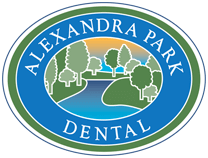Maintaining Dental Health: Understanding and Preventing Tooth Cavities
The health of our teeth is vital for overall well-being. Neglecting dental care can lead to tooth decay and cavities, which can have serious consequences. In this blog post, we will explore the common signs and symptoms of tooth cavities, understand what causes them, and learn preventive measures to keep our teeth in optimal condition.
What is a Cavity?
Tooth decay occurs when bacteria and food particles accumulate on our teeth, forming plaque. The bacteria in plaque produce acids that erode the enamel, leading to the formation of cavities. If left untreated, cavities can severely damage teeth and give rise to complications such as abscesses or infections.
Recognizing the Signs of a Cavity
Early detection of cavities is crucial for timely treatment. Here are five common signs to watch out for:
- Hot and Cold Sensitivity: Tooth sensitivity to temperature changes, especially after consuming hot or cold food, may indicate the presence of a cavity. Enamel erosion exposes the sensitive dentin, causing discomfort.
- Lingering Sensitivity to Sweets: Prolonged sensitivity to sugary foods or drinks can also be an indication of tooth decay. Damage to the enamel and the onset of cavities can cause discomfort when consuming sweet substances.
- Toothache: Persistent toothaches, either spontaneous or triggered by eating, are common symptoms of cavities. Pain or pressure while biting down may also indicate tooth decay.
- Staining on the Tooth: Cavities can cause visible stains on the tooth surface. Initially, they may appear as white spots and gradually darken as decay progresses.
- Visible Holes or Pits: As cavities worsen, holes or pits may become noticeable on the tooth's surface. These may be visible to the naked eye or detected by running your tongue over the teeth.
When to Seek Dental Care
If you experience any of the above signs, it's important to schedule an appointment with your dentist promptly. Timely intervention can prevent further damage and ensure more effective treatment. Regular dental check-ups, every six months, are essential for early cavity detection through x-rays and professional examinations.
Prevention is Key
Taking preventive measures can significantly reduce the risk of cavities. Here are some essential steps to incorporate into your oral care routine:
- Regular Dental Visits: Maintain regular dental check-ups to identify and address potential cavities before they worsen. Professional cleanings and examinations play a vital role in preventing and managing tooth decay.
- Proper Oral Hygiene: Brush your teeth at least twice a day with a fluoride toothpaste. Establish a daily flossing routine to clean between your teeth and remove plaque effectively.
- Mindful Eating Habits: Limit the consumption of foods that stick to your teeth or contain high sugar content. Foods like dried fruit, hard candy, and sugary beverages increase the risk of cavities.
- Stay Hydrated: Drink plenty of water throughout the day to promote saliva flow and help rinse your teeth. A dry mouth can increase the likelihood of cavities.
- Consider Preventive Products: If you are prone to cavities, ask your dentist about high-fluoride toothpaste or fluoride mouthwash, which can provide added protection.
Maintaining good dental health is essential for overall well-being. By understanding the signs and symptoms of cavities and adopting preventive measures, we can protect our teeth from decay and avoid more invasive treatments. Regular dental visits, proper oral hygiene, and mindful eating habits will go a long way in preserving the health and longevity of our smiles. Remember, prevention is the key to a cavity-free future!
Book Online
Alexandra Park Dental offers the ability to request your dentist appointments online. Schedule an appointment now!
Book OnlineNew Patient Forms
By filling out the New Patient Forms ahead of time you will save significant time on your visit.
New Patient Forms
Dental Hygiene & Cleanings Leduc.
Preventive dentistry is the key to a long-lasting, healthy smile. Professional dental care is just as essential as brushing and flossing regularly. Preventative care in the form of professional dental services is crucial to avoiding difficult and expensive dental issues later on.
